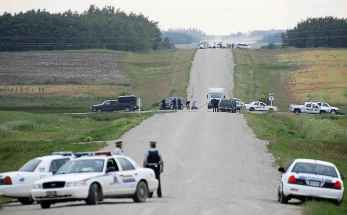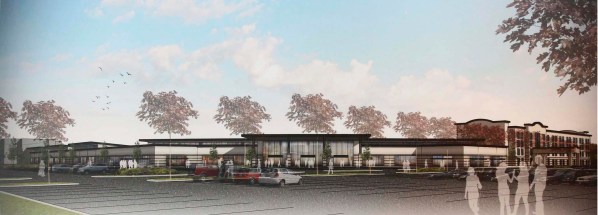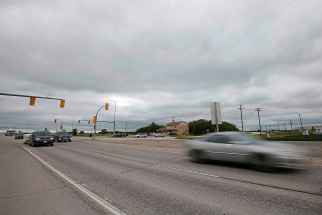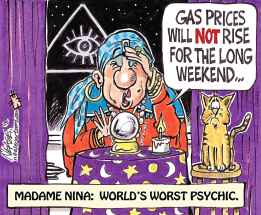Shortage of anesthesiologists in Manitoba causing surgery cancellations
Read this article for free:
or
Already have an account? Log in here »
To continue reading, please subscribe:
Monthly Digital Subscription
$0 for the first 4 weeks*
- Enjoy unlimited reading on winnipegfreepress.com
- Read the E-Edition, our digital replica newspaper
- Access News Break, our award-winning app
- Play interactive puzzles
*No charge for 4 weeks then price increases to the regular rate of $19.00 plus GST every four weeks. Offer available to new and qualified returning subscribers only. Cancel any time.
Monthly Digital Subscription
$4.75/week*
- Enjoy unlimited reading on winnipegfreepress.com
- Read the E-Edition, our digital replica newspaper
- Access News Break, our award-winning app
- Play interactive puzzles
*Billed as $19 plus GST every four weeks. Cancel any time.
To continue reading, please subscribe:
Add Free Press access to your Brandon Sun subscription for only an additional
$1 for the first 4 weeks*
*Your next subscription payment will increase by $1.00 and you will be charged $16.99 plus GST for four weeks. After four weeks, your payment will increase to $23.99 plus GST every four weeks.
Read unlimited articles for free today:
or
Already have an account? Log in here »
Hey there, time traveller!
This article was published 02/08/2018 (2691 days ago), so information in it may no longer be current.
The Winnipeg Regional Health Authority hasn’t had a full slate of anesthesiologists for more than a year, forcing a number of surgery cancellations over the past several months.
The region’s limited team is a symptom of a province-wide shortage, experts say.
“In order to cover the existing demand for anesthesia services, the WRHA would require a minimum of 100 anesthesiologists working at full time,” a spokesperson for the health authority said in a statement Thursday.
There are 120 anesthesiologists who work in the WRHA at present, but not all of them work a full-time schedule in clinical practice. Some work in private clinics, hold administrative or teaching roles, or work part-time.
Anesthesiologists, otherwise known as anesthetists, are physicians with expert knowledge about the amnesia-inducing drugs used during surgeries to minimize pain and put patients under. They work in all operating rooms where amnesia is required, and can also be found in intensive care units, maternity wards and chronic pain clinics.
The limited availability hasn’t affected any emergency surgery wait lists, Krista Williams, chief health operations officer at the WRHA, said in a statement Wednesday.
However, it has impacted elective procedures.
More than 80 per cent of surgical slate (the set amount of time in an operating suite) cancellations this spring, between April 1 and June 30, were due to concurrent conflicts for the surgeon and the anesthesiologist, the WRHA said.
An anesthesiologist’s availability was cited as one of the reasons for a cancellation — most of which took place before patients were booked into the slot — in 2.5 per cent of scheduled slates.
Williams said the WRHA has been able to mitigate most of the need by booking surgeries in back-to-back blocks, as opposed to one-off surgeries, and transferring anesthesiologists who practice with adults on pediatric cases “where appropriate and safe to do so.”
“The WRHA has been actively working to expand our pool of anesthetists for the past number of months,” she said. “Due to a number of factors, including simultaneous retirements and moves that took place across a short period of time, the region has not had a full complement of anesthesiologists for over a year.”
Douglas Duval of the Canadian Anesthesiologists’ Society told the Free Press there’s a concern about anesthesia being a “bit of a bottleneck” when it comes to wait times both at present, and in the future, across the country.
The Edmonton-based anesthesiologist said Manitoba has been specifically “identifying a need” for the specialized physicians. “It’s not a nice phenomenon.”
Nearly a quarter of Canadian anesthesiologists reported they felt overworked in their discipline, according to the latest Canadian Medical Association workforce study. The study results show the average professional works 55 hours every week — excluding on-call services, which account for another 80 hours every month.
Nurses have had “longstanding concerns” about a province-wide anesthesiologist shortage, said Darlene Jackson, president of the Manitoba Nurses Union. They are especially concerned about lengthy wait times for elective surgeries that could significantly improve a patient’s quality of life, she said.
“That’s extremely upsetting for patients and their families and it’s frustrating for all of the other health-care professionals who want the best for patients,” NDP health critic Andrew Swan agreed, adding it isn’t the first time he’s heard of such a shortage.
“Earlier this year, it came out that there was a huge shortage of anesthesiologists in Brandon, that was resulting in cancellations of many, many surgeries. Those doctors had left and they hadn’t found anyone to replace them,” he said.
Virginia Shemeliuk travelled 100 kilometres south to Brandon from Sandy Lake to get kidney stones removed in February. She said she arrived at the hospital at 9:30 a.m. and didn’t get into surgery until 7 p.m. because the surgeon’s nurse practicioner told her there simply weren’t enough anesthesiologists available.
“I had to be watched closely as well, because I have extremely low blood oxygen levels, which makes it even more imperative that I be monitored. It was a long day for everyone,” she said Thursday. “It wasn’t anyone’s ‘fault,’ just not enough anesthesiologists to do the job.”
A full complement of anesthesiologists in Brandon would be the equivalent of eight full-time staff. The city is roughly three short of that number, said Penny Gilson, chief executive officer of Prairie Mountain Health.
In the long-term, Gilson said her team in Brandon and colleagues across the province are looking to “recruit aggressively.”
Cameron Friesen, minister of health, seniors and active living, said he’s aware there are more vacancies than normal, and recruitment work is underway.
The problem doesn’t just stem from physicians packing up and leaving for greener pastures, the Canadian Anesthesiologists’ Society president said, pointing at retirement. According to CMA data, about 41 per cent of anesthesiologists in 2017 were 55 or older.
Duval said that means Manitoba needs to look at “ramping up” the funding provided to post-grad training programs and looking for international medical graduates to fill the gaps.
“We don’t want to be the limiting factor. We don’t want to be the bottleneck. We don’t want to be the reason that’s behind limiting services.”
maggie.macintosh@freepress.mb.ca
Twitter: @macintoshmaggie

Maggie Macintosh reports on education for the Winnipeg Free Press. Funding for the Free Press education reporter comes from the Government of Canada through the Local Journalism Initiative.
Our newsroom depends on a growing audience of readers to power our journalism. If you are not a paid reader, please consider becoming a subscriber.
Our newsroom depends on its audience of readers to power our journalism. Thank you for your support.









